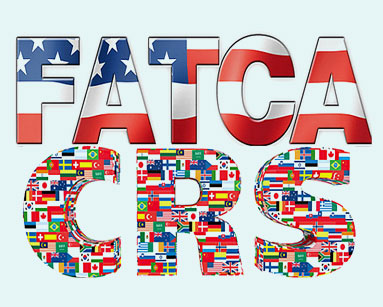CRS and FATCA are two reporting standards followed in UAE. In this blog, we will cover everything that you need to know about CRS & FATCA reporting standards.
What is FATCA?
FATCA stands for Foreign Account Tax Compliance Act which requires all foreign financial institutions to keep a record of the assets held by the residents of the US across the world. The main objective of FATCA is to control & restrict offshore tax evasion by US citizens.
The act achieves this by collecting information related to offshore accounts, and investments that are directly or beneficially owned by US citizens. The citizens can declare their foreign assets to the IRS directly or they can disclose the same to the foreign financial institution.
FATCA Compliance Requirements
FATCA requires all US taxpayers to hold foreign assets with a minimum threshold of $50,000 in their annual income.In case any institution fails to provide the information, then the IRS may impose a 30% withholding charge on the source of investment or sales generated within the United States.
This withholding tax rate is charged by the IRS against any financial instruments, bank accounts, bills, certificates of deposit, interests, dividends, or rents that have their source in the US.
Understanding the Intergovernmental Agreements(IGAs)
The whole purpose of FATCA is to ensure that there is more transparency, better reporting and strong sanctions against all kinds of offshore tax abuses.
Till now there are more than 80 nations that have agreed to FATCA to allow all their financial institutions to comply with FATCA.
However, the obligations imposed by FATCA do not take into account a nation’s domestic laws such as data confidentiality and protection.
Therefore, the US treasury has proposed to work with an intergovernmental framework to enable reporting via intergovernmental agreements(IGAs).
There are two different models with IGAs, Model 1A wants the IRS to associate with the respective regulators that ensure the FATCA requirements.
On the other hand, Model 1B the financial authorities report directly to the IRS with all the requirements of FATCA.UAE has adopted Model 1B, and all financial institutions report directly to the IRS for the FATCA requirements.
How did the FATCA information exchange?
Once the required information from all the accounting holders is collected, then the financial institutions need to disclose and share the information with the concerned authority. After the approval, then the information is directly shared with the IRS.
All the Onshore banks need to get the information approved from the UAE central bank. Other investment funds need to be approved by the UAE’s securities & commodities Authority. All entities incorporated in the DIFC are regulated by DFSA(Dubai Financial Services Authority). All these disclosures need to be done annually.
Here is the information shared by the IRS:
- Name, address, Tax Identification Number, and social Security Number.
- Account number.
- Account balance & value.
- All incoming and outgoing transactions.
Now that we have shared information regarding FATCA, let’s share more information regarding CRS.
What is CRS?
We can consider CRS as an international version of FATCA. As explained earlier, FATCA applies only to US citizens, whereas CRS applies to citizens across all registered countries. Both the FATCA & CRS are created to prevent offshore investors from avoiding taxes or money laundering in foreign countries.
CRS stands for Common Reporting Standard. It was created by OECD (Organisation for Economic Co-operation and Development) for the participating jurisdictions(currently 100+).
As per CRS, the account information is collected for all the customers who are tax residents outside the country in which they have their accounts.
All the participating countries collect information from both the businesses and people within the jurisdiction. All the countries exchange the information with all the other participating countries as per the CRS agreement.
What information is exchanged as per the CRS agreement?
The participating jurisdictions need to make sure that their banks & local authorities reach out to customers to request the necessary documents to confirm their tax residency status.
Information required as per the CRS agreement:
- Name, address, Tax identification number, birth date & day of each person named on the CRS.
- Account number
- Name and number of the corporation
- Account balance/values
- All capital gains within the year.
For more details on how the information is shared, check the OECD website for further details.
Which Businesses come under CRS?
The CRS concerns all financial institutions to report all their income and expenditures to their governing body of jurisdiction. Here are some of the financial institutions that come under CRS:
- Custodial Institutions
- Banks
- Investment Trades
- Asset/Wealth Managers
- Depository Institutions
- Investment Entities
- Specified Insurance Companies
How does CRS affect businesses in UAE?
The CRS is an international initiative that is developed to fight tax evasion and ensure tax transparency.
Companies above the book profit threshold of 375,000 AED ($100,000) will be subject to Corporate tax. There are still some checks and considerations required to check compliance. Certain freezones in the UAE might be eligible for 0% Tax subject to proving economic substance in the UAE.


